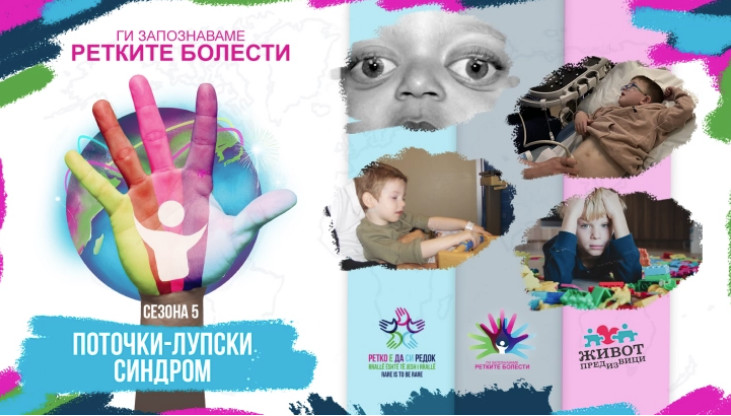We get to know the rare diseases: Potocki-Lupsky syndrome

Potocki-Lupski syndrome is a genetic disease that occurs as a result of the duplication of a small part of chromosome 17, specifically its short arm at position p11.2. Patients have slow development, hypotonia, feeding problems, and some enter the autistic spectrum. The disease is inherited in an autosomal dominant manner, but most patients are the result of a "de novo" mutation. Duplication was first described as a case study in 1996. In 2000, the first study on the disease was published, and in 2007, enough patients were collected to complete a comprehensive study and provide a detailed clinical description. This syndrome is named after the two researchers involved in the final stages, Dr. Lorraine Potocki and James R. Lupsky of Baylor College of Medicine.
Reasons:
Two-thirds of sufferers have a duplication of the 17r11.2 portion of chromosome 17, which includes 3,7 million DNA building blocks, or base pairs. Contrary to this, the deletion of the same part is called Smith-Magenis syndrome. In the remaining one third of the cases, the duplication is longer or shorter. All these duplications involve only one of the two 17-chromosomes in each cell. Although the duplicated region contains many genes, however, researchers have discovered that an extra copy of a gene called RAI1 is responsible for most of the disease's symptoms. Namely, it is a gene that provides information about making proteins that are responsible for the function of other genes, most of which have not yet been discovered. It has not been discovered how many additional copies of this gene lead to intellectual disability, as well as other signs and symptoms of this disease, so research is being done in that field as well.
Symptoms:
The symptoms and severity of the disease vary from one person to another, they can be subtle, and the diagnosis can be made later. Symptoms include:
– congenital heart defects;
– hypotonia;
- difficult feeding;
– the baby is not progressing;
– motor and verbal retardation;
– intellectual disability;
– problems with behavior, hyperactivity, attention, withdrawal;
– autism;
– neuropsychiatric disorders such as bipolar or anxiety;
– long-term studies involving children and adults with PTSD are needed to identify the range of variability of the disease, the problems that occur at a certain age, the prognosis of the disease, etc.;
– other symptoms include: hearing problems, dental problems, skeletal and kidney abnormalities in development and function, sleep problems, subtle facial abnormalities where the outer corners of the eyes turn down, triangular face, broad forehead, small jaw, wide set eyes (hypertelorism).
Consequences:
Babies have hypotonia, feeding difficulties, do not gain weight and height, and are always shorter than a typically developing baby. About 40% have a congenital heart defect that can be life-threatening. Furthermore, they are delayed in development, have delayed speech and language abilities, weak, fine and gross motor skills, difficulties with sitting, crawling, walking. As they get older, they show intellectual disabilities ranging from mild to moderate, difficult speech, behavioral problems, autism, etc.
Treatment:
The treatment of this syndrome depends on the severity of the disease and includes a complicated multidisciplinary approach of a team of doctors (pediatric cardiologists and cardiac surgeons, nephrologists, orthopedists, physiotherapists, speech therapists, psychologists, psychiatrists). Early intervention is very important and begins immediately after diagnosis.


